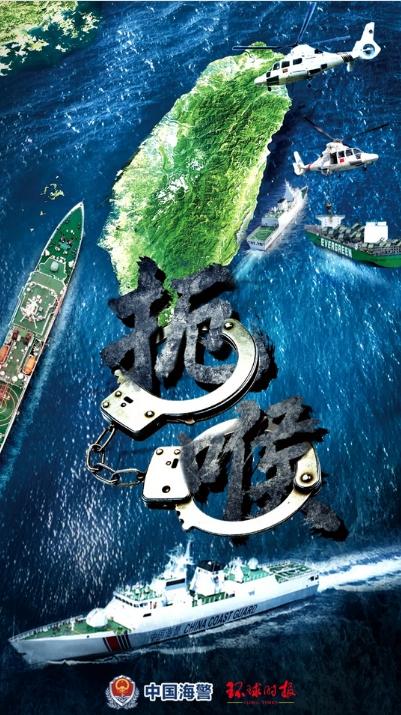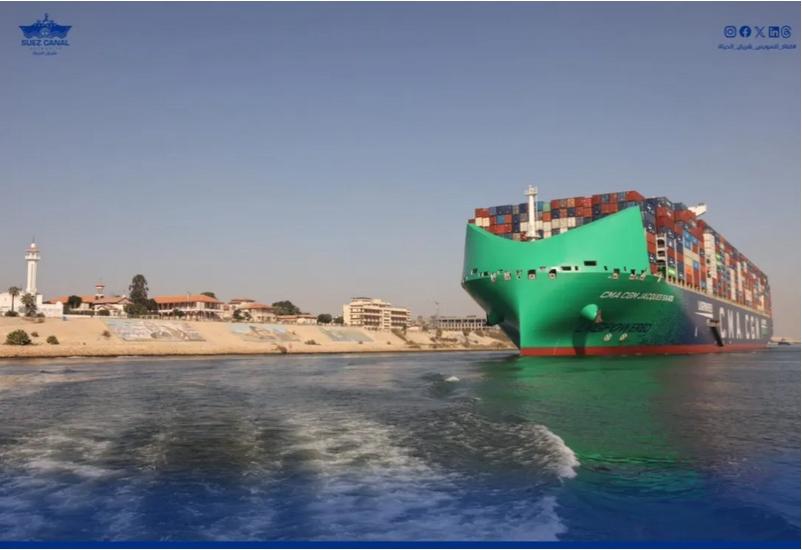
【摘要】在航运实务中,船舶时常碰到少装货的情况,那么在这种情况下所产生的亏舱费,是否可以追偿?本文通过实践中出现的关于亏舱费的争议,再结合The“Archimidis”案来谈谈亏舱费条款的解释问题。
【关键词】亏舱费、安全港口、deadfreight、索赔
之前笔者在介绍The “Johnny K”案的文中曾经说了一些关于亏舱费的问题,当然具体到个案中,还得依据相关的合同条款来解释。如果在合同中已经明确说明,无论何种原因导致的少装货,承租人对亏舱均不负担,那么所谓的亏舱费将不可追偿。本文就合同中未作此列明的情况,结合实务中所发生的争议,再来谈谈亏舱费条款的解释问题。
首先来看第一个关于亏舱费的争议。出租人与承租人就一好望角型船N轮,签订了一份程租合约。初始承租人安排到Sudeste港装货,后来承租人要求改装港,安排到Tubarao港装。众所周知,Tubarao港1号泊位一南一北,都可以装货,但北边的泊位有吃水限制。Tubarao港的2号泊位对于N轮而言没有吃水限制,N轮可以满载。
承租人一开始宣到2号泊位装货,N轮船长于是制定配载图,宣载174,514吨,离港吃水18.322米。但是在N轮抵港前,承租人突然说改到1号泊位北边码头装货,因北泊位吃水限制,N轮仅装到17.96米,总共169,624吨便被安排离港。出租人于是索赔4,890吨的亏舱费。
承租人认为依据合同条款,亏舱费并不适用,也未违反一个安全港口的责任;船长应该依据泊位的吃水限制,制定合适的配载图。承租人认为只有在比准确的配载图少装货的情况下,亏舱费才适用。依据船长在6月19日的电邮,船舶在1号北泊位能够装载170,097吨,承租人认为他们也打算提供满载的货物,因此出租人没有索赔亏舱费的前提,于是发了如下电邮。
Goodday
Chrs went through the CP and understand that no deadfreight can apply.
The question that has to be answered is whether Charterers will fail to supply a full and complete cargo pursuant to clause 25 of the riders incorporated in the governing charterparty.
There is only one equation of facts to consider here. Will the vessel load the maximum permitted cargo at the nominated berth?
Our fixture is for “1 SB Sudeste”, and when the alternative port of Tubarao was nominated, the c/p was effectively changed to “1 SB Tubarao”. In other words, Charterers (and not Owners) have the right to select one safe berth for loading the booked cargo at Tubarao. As for now, the berth nominated is Pier 1. At that point, Owners should revise the ship’s pre-stowage plan to reflect the parameters/restrictions of the loading berth (Pier I). (Pls advise if attached sent by Master is the prestowage plan bss loading at Pier I)
Deadfreight is due only for short-loaded quantities as against the correct pre-stowageplan.
As per Master’s email dd 19/06, correct prestowage plan shows that ship can load 170,097 mts of cargo at Pier 1(Pls confirm that this is correct). Based on this figure, Charterers intend to supply a complete shipment, therefore Owners have no premise for advancing a deadfreight claim.
随后,该承租人又发了如下电邮,坚持他们先前的承诺,即承担租约期间可能到期的任何亏舱费,但根据他们的评估,在这些情况下实际上不应支付亏舱费。承租人认为,从第25条中可以清楚地看出,亏舱是根据船长的配载计划来衡量的,并且与船舶本可以收到的任何数量的货物有关,但承租人没有提供这些货物。这种情况在这里没有发生,如果船舶能够装载,则可以获得额外的货物。
承租人认为他们提供了船长在他在1号码头装载前的预先计划所要求的所有货物,因此无需为此受到惩罚,希望出租人能不再进一步追究所谓的亏舱费。
Owners below noted but one more time is rejected.
Charterers stand by their previous commitment to cover any deadfreight which might be due under the governing charterparty, however according to our assessment, no deadfreight is in fact payable under these circumstances. As you will appreciate, it is clear from Clause 25 that deadfreight is measured against the Master’s stowage plan, and relates to any quantity of cargo which the vessel could have received but which Charterers did not supply. This did not happen here, and additional cargo was available if the vessel had been able to load it.
What instead we are being faced with is a situation which Owners inaccurately claim deadfreight, when in reality Chrs provided all cargo requested by Master at his prestowage plan bss loading at Pier 1. To put this into perspective;
- A stowage plan is issued when all restrictions affecting the loadable quantity of the cargo are known. This includes the depth of the loading berth, and other restrictions which the Owners must satisfy themselves exist as per the c/p recap.
- In our case, Chrs nominate Pier 1 at Tubarao. Based on this information, Master issued the final stowage plan.
- Said final stowage plan showed the loading capacity as 169,624 mt (which is within the agreed min/ max cargo quantity), and 169,624 mt of cargo was indeed supplied by Charterers for loading.
- Therefore,where there was no actual short-loading due to unavailability of cargo, nodeadfreight can fall due.
Charterers cannot be penalised for nominating Pier 1 as the “1SB” at the loading port, and it is only once said nomination was made that Owners assessed the berth restrictions, and issued the stowage plan accordingly. Against this background,we thank you to confirm that the alleged deadfreight claim will not be pursued further.
Owners pls to revert with IFI for timely settlement
Many thanks, and all rights reserved.
引用这些电邮为得是看人家是如何为自己辩护的,从哪些角度狡辩。笔者在整理这些文章的时候,也时常全文引用笔者所写的反驳电邮。这些电邮,稍作改动并可为自己所用,可以直接拿来反驳人家,从而节省大量的写作时间,提高工作效率。
笔者在简单了解该争议后,针对合同第25条特定的亏舱费条款,如下:
25. DEADFREIGHT
25.1 If the Charterer fails to supply a full and complete cargo reflecting the Master’s pre-stow plan,deadfreight shall be payable at the rate stated in BOX 15 on the difference between the Master’s pre-stow plan as approved by the Charterer and quantity supplied by the Charterer.
该条款已经非常明确说明,如果依据船长的配载图,承租人未能提供满舱和满载的货物,那么就应该支付亏舱费。而对于这个“a full and complete cargo”的解释问题,已经有权威书籍及判例对此进行了解释,于是笔者草拟了如下电邮,反驳承租人所声称的无需承担亏舱费问题。
Further to our previous exchange, Owners are a bit disappointed to note that the charterers still no willing to accept the deadfreight claim.
Pursuant to clause of 25-Deadfreight which provides:
25. DEADFREIGHT
25.1 If the Charterer fails to supply a full and complete cargo reflecting the Master’s pre-stow plan, deadfreight shall be payable at the ratestated in BOX 15 on the difference between the Master’s pre-stow plan asapproved by the Charterer and quantity supplied by the Charterer.
It’s no any doubt that the charterers have to pay deadfreight if they fails to supply a full and complete cargo.
As Owners clarified earlier, The vessel could load her full and complete cargo total 174,514mts but the charterers only provide 169,624mts for the vessel, therefore the charterers have to pay deadfreight basis shortage of 4,890mts.
In respect of “Full and complete cargo ”, The charterers please refer to 《Voyage Charter》Chapter 6-The Cargo, 6A.1,as below:
“Full and complete cargo”
6A.1 Under the Gencon form, the charterer is obligated to “load a full and complete cargo. . . which the Charterers bind themselves to ship.” Part II, Clause 1. Generally, the charterer willbe in compliance with thisclause if the quantity of cargo shipped fills the vessel’s deadweightcapacity. When charterer fails to supply a full and complete cargo, the owner may be entitled to payment of deadfreight.
In Cole v. Meek (1864) 15 C.B.(N.S.) 795.case, A charterparty provided for shipment of “a full and complete cargo of sugar or other lawful produce”,and stipulated that any broken stowage should pay“as customary”. The charterers provided a fullcargo of logs, which left room for broken stowageupon which the owners claimed deadfreight.
The charterers were held liable for deadfreight.Although they were entitled to ship a full cargo oflogs, having chosen to do so they were obliged also to supply broken stowage.
In “Sagatind” case, Where charterparty provided:
The steamer should proceed to Mesane after completing her then intended voyage, and ther load a full and complete cargo of timber for a port in the United Kingdom or North France, Hollandor Belgium, at charterers' option, orders to be given on signing bills oflading or at Lodingen. Time was not to count before July 15.
In court of appeal, Lord Justice Banks,Lord Justice Atkin and Lord Justice Sargant held that the charterers breach their obligation to provide a full and complete cargo for the vessel and the charterers is liable for deadfreight.
Lord Justice Sargant said in his judgement:
There was a further contention on the part of the appellants that should perhaps be noticed,namely, that they had only to provide cargo, not to load it, and that there was no evidence that they had not provided a full summer cargo. In my judgment,under this charter-party, the charterers had both to provide and to load; and there is no evidence that there was any default on the part of the ship to provide the assistance mentioned in Clause 20. Nor is it shown that the master at any time declined to accept more than a winter cargo. From his letters ofOct. 16 and 19, I should gather that he was willing to accept a full summer cargo provided that, if he was ordered to sail after Oct. 20 to a British port,provision was made for the fines which he might incur. The points mentioned in this paragraph are not the real points in issue between the parties; they arenot raised by the charterers' defence in the action; and they do not seem tohave been argued before the learned Judge.
On the other hand, On the authority of leading case The“Archimidis”, The charterers may put them in breach safe port warranty if they not yet arranged floating barge to load full cargo for the vessel or stay a tberth to wait for next suitable tide.
If the charterers may contend that it’s shipper m/s Vale their arrangement which was beyond charterers’ control, but it’s well established that the shippers are deemed as charterers’ agent, such as in The “ArcticTrader” case, Where Lord Justice Evans said:
It is clear, in our judgment, that when the time charterer instructs the master, pursuant to the employment provisions of clause 8, to receive certaincargo on board, and the cargo is loaded at the charterer’s expense, although under the supervision and maybe at the risk of the shipowner, then the cargo isloaded by or on behalf of the charterer for the purposes of the charter-party,and a third party shipper should be regarded as the charterer’s agent accordingly.
Therefore the charterers still should hold whole responsible for shipper’s arrangement.
Hope above are clear and will be acceptable by the charterers.
如果承租人声称是发货人的安排,那么依据The“Arctic Trader”案,Evans法官所说,发货人视为承租人的代理人,承租人还是得赔偿出租人因少装货所带来的损失,即亏舱费。
接下来来看第二个争议。出租人与承租人就20万吨的G轮签订了一连续航次的程租合同,承租人安排G轮从澳大利亚的黑德兰港口装货到中国卸。在其中一个航次,船长的配载图基于最大装货量为202,700吨,但是由于潮水原因及发货人安排,该轮仅装了197,574吨就被要求离港开航。
出租人于是找承租人索赔亏舱5,126吨。
其中所涉及的合同条款如下,第4条关于货量的,19万,多或少10%出租人的选择权。但是加了表黄色部分,如果船舶在装港或卸港口由于吃水限制的原因,无法装到船舶水尺,则该载货将被视为满舱和满载的货物。
4. Cargo description / Size
190,000MT10% MOLOO IRON ORE IN BULK, ALWAYS EXCLUDING DRI/DRIP/HBI/SPONGE IRON, TO BE LOADED/TRIMMED/DISCHARGED IN ACCORDANCE WITH IMO REGULATIONS/ RECOMMENDATIONS.
THE SHIPMENT WILL BE DEEMED TO BE A FULL AND COMPLETE CARGO, EVEN IF THE VESSEL ISNOT LOADED DOWN TO HER MARKS BY REASON OF DRAFT RESTRICTIONS AT LOADING ORDISCHARGING PORT(S).
第8条是关于安全港口的保证。
8. Load Port(s)
1-2 SBS 1-2SPS WESTERN AUSTRALIA
第19条是关于佣金的,约定3.75%的佣金基于净运费,滞期费及亏舱费。
19. Commission
3.75 PCT ADDRESS COMMISSION TO BE DEDUCTED BY CHARTERERS FROM NET FREIGHT RATE /DEMURRAGE AND DEADFREIGHT
很多时候,如果粗略理解第4条,可能会认为确实因为吃水问题导致的,所以承租人无需承担亏舱费,但笔者并不这么认为。合同第4条,仅仅是说由于吃水限制的原因导致船舶无法装载到满载水尺,则视为完全和全部的货物。但是否是真正因为吃水限制呢?显然不是,是因为发货人的安排。黑德兰港口受潮水影响较大,船舶完全可以在泊位等待下一个合适的潮水以便装满货物离港,但显然,承租人为了自己利益考虑,没有让船舶继续呆在泊位,而是选择让船舶离港开航。此外澳大利亚的黑德兰有十几个码头,各个码头吃水情况略有不同,承租人也未安排船舶到其它水尺更好的泊位继续装货。
基于这些原因,在借鉴之前电邮的基础上,发了如下电邮给承租人,索赔亏舱费。
Assume the charterers well aware that the vessel already sailed from Port Hedland with shortage cargo.
As per Master’spre-stowage plan his vessel could load 202,700mts, but due to shipper and or port their arrangement, his vessel was required to sail and just only loaded 197,574mts, shortage of 5,126mts.
Charterers may contend and may try to rely on clause 4 of thischarterparty, where it provides:
4. Cargo description / Size
190,000MT 10% MOLOO IRON ORE IN BULK, ALWAYS EXCLUDINGDRI/DRIP/HBI/SPONGE IRON, TO BE LOADED / TRIMMED / DISCHARGED IN ACCORDANCE WITH IMO REGULATIONS / RECOMMENDATIONS.
THE SHIPMENT WILL BE DEEMEDTO BE A FULL AND COMPLETE CARGO, EVEN IF THE VESSEL ISNOT LOADED DOWN TO HER MARKS BY REASON OF DRAFT RESTRICTIONS AT LOADING OR DISCHARGING PORT(S).
In respect of “Full and complete cargo”, The charterers please refer to 《Voyage Charter》Chapter 6-The Cargo, 6A.1, as below:
“Full and complete cargo”
6A.1 Under the Gencon form, the charterer isobligated to “load a full and complete cargo. . . which the Charterers bindthemselves to ship.” Part II, Clause 1. Generally, the charterer will be in compliancewith this clause if the quantity of cargo shipped fills the vessel’s deadweight capacity. When charterer fails to supply a full and complete cargo, the owner may be entitled to payment of deadfreight.
In Cole v. Meek (1864) 15 C.B.(N.S.) 795.case, A charterpartyprovided for shipment of “a full and complete cargo of sugar or other lawful produce”, and stipulated that any broken stowageshould pay “as customary”. The charterers provided a full cargo of logs, which left roomfor broken stowage upon which the owners claimed deadfreight.
The charterers were held liable for deadfreight. Although they were entitled to ship a full cargo of logs, havingchosen to do so they were obliged also to supply broken stowage.
In “Sagatind” case, Where charterparty provided:
The steamer should proceed to Mesane after completing her thenintended voyage, and there load a full and complete cargo of timber for a port in the UnitedKingdom or North France, Holland or Belgium, at charterers' option, orders tobe given on signing bills of lading or at Lodingen. Time was not to countbefore July 15.
In court of appeal, Lord Justice Banks, Lord Justice Atkin andLord Justice Sargant held that the charterers breach their obligation toprovide a full and complete cargo for the vessel and the charterers is liablefor deadfreight.
Lord Justice Sargant said in his judgement:
There was a further contention on the part of the appellants thatshould perhaps be noticed, namely, that they had only to provide cargo, not toload it, and that there was no evidence that they had not provided a fullsummer cargo. In my judgment, under this charter-party, the charterers had bothto provide and to load; and there is no evidence that there was any default onthe part of the ship to provide the assistance mentioned in Clause 20. Nor isit shown that the master at any time declined to accept more than a wintercargo. From his letters of Oct. 16 and 19, I should gather that he was willingto accept a full summer cargo provided that, if he was ordered to sail afterOct. 20 to a British port, provision was made for the fines which he mightincur. The points mentioned in this paragraph are not the real points in issuebetween the parties; they are not raised by the charterers' defence in theaction; and they do not seem to have been argued before the learned Judge.
If the charterers may contend that THE VESSEL IS NOT LOADED DOWN TO HER MARKS BY REASON OF DRAFT RESTRICTIONS AT LOADING OR DISCHARGINGPORT(S), and try to relieve their obligation to provide full and complete cargo, which Owners denied. Short loaded was not due to port physical draft restrictions, but charterers or shipper their arrangement.
On the authority of leading case The “Archimidis”, The charterers may put them in breach safe port warranty if theynot yet arranged floating barge to load full cargo for the vessel or stay atberth to wait for next suitable tide.
If the charterers may contend that it’s shipper their arrangement which was beyond charterers’ control, but it’s well established that the shippers are deemed as charterers’ agent, such as in The “Arctic Trader” case, Where Lord Justice Evans said:
It is clear, in our judgment, that when the time charterer instructs themaster, pursuant to the employment provisions of clause 8, to receive certaincargo on board, and the cargo is loaded at the charterer’s expense, althoughunder the supervision and maybe at the risk of the shipowner, then the cargo isloaded by or on behalf of the charterer for the purposes of the charter-party,and a third party shipper should be regarded as the charterer’s agent accordingly.
Therefore the charterers still should hold whole responsible for shipper’s arrangement.
Hope above areclear and will be acceptable by the charterers.
Charterers please confirm the deadfreight basis 5,126mts for this shipment, Awaiting for charterers’ positive confirmation by return.
借鉴之前的电文,写这封电邮用时极少,不到20分钟。但是承租人收到电邮后,所给予的答复如下让人大跌眼镜。
Please note we reject owners claim in its entirety on the basis that at no stage do we guarantee the departure draft.
承租人认为他们在任何时候都没有保证离港吃水,所以无需承担亏舱费。但是忽略了他们保证了提供 “a full and complete cargo”,船舶未能装载其所要求的满载货量就被要求离港,显然不是满舱和满载的货物。其次,承租人在合同第8条中对安全港口作出了保证,依据The“Archimidis”案,承租人未安排G轮继续安排在泊位等待下个合适的潮水或者安排在锚地继续装货,构成了违约;船舶在满载的情况下,无法离开装港,也违反了安全港口保证。
笔者认为这种简单地说我不同意,就是不同意的并非专业的做法,有点耍流氓。但是按要求为了维护客户关系,笔者未进一步反驳该承租人所说。在随后的The “Archimidis”案中将继续详细解释这个问题。
第三个关于亏舱费的争议,其中合同第10条规定如下:
10.Full and complete/Part Cargo and Quantity
One year of consecutive Pacific round voyages of
170,000metric tonnes,10 percent more or less in Owners' option,iron ore in bulk,13 grades in Charterer's option to be naturally separated,excluding DRI,DRIP,HBI.Cargo to be loaded /stowed as per IMO and local recommendations.
涉及争议的X轮还是到黑德兰港装货,但是租家及发货人安排了当时某个水深较小的泊位,结果导致亏舱20,231吨。出租人于是找承租人索赔亏舱费,但承租人拒绝,认为货物已经装到按港口当局推荐的最大吃水,依赖第10条最后一句“local recommendations”,因此无需承担亏舱费。
其实该合同下,第10条也非常明确,黑体粗字明确说“Full and complete /Part Cargo and Quantity”,满舱及满载/部分货物和数量。条款内容规定的是,17万,加减10%,出租人的选择权。说的是出租人的选择权,而不是承租人。在发了和之前类似的电文之后,承租以local recommendations来抗辩,很惊讶。Local和IMO连接在一起,所说的不是货物的货量,而是装载的方式。比如装铁矿谷物等散货,承租人不能装到甲板上,应该装在货舱里。承租人也不能将所有货物都装在一个舱里,而其它舱都不装,这种装货方式将导致船舶的剪力弯矩受到严重影响,威胁到船舶航行安全。
此外该合同下,承租人保证的仅仅是泊位安全,港口安全并不保证。所以合同条款的起草者,可以拟定出千奇百怪的合同条款出来。其实,笔者认为,如果不想承担亏舱费,完全可以如文中开头所说,明确说明不管任何原因导致的少装货,承租人均不承担亏舱费,那么就没有任何争议可言,如下:
No matter of whatsoever reasons which will cause shortage loaded, Charterers will not hold any responsible for any deadfreight claim.
合约的解释应该将前后文当一个整体,因此如果合约中有这么一句话,亏舱费将不可追偿。
最后再来看看本文将介绍的AIC Ltd v Marine Pilot Ltd[2008] EWCA Civ 175 (07 March 2008),The “Archimidis”案。
一、基本案情
Marine PilotLimited (以下简称“出租人”) 在2004年10月27日于AIC
Limited(以下简称“承租人”),以Asbatankvoy格式为The “Archimidis”轮(DWT94,999吨,满载吃水13.47米,以下简称为“A轮”)签订了3个连续航次的程租合同。随后在2004年11月26,12月21,与2015年的1月12日又签订了补充协议,整份合同总共有8个连续航次,只是后续的几个航次增加了卸港范围。
在第6个航次,由于受到恶劣天气的影响,装港航道吃水变浅,从而导致Ventspils港允许的开航吃水变小;因此A轮仅装了67,058吨柴油,承租人便安排离港;比船长的预配约93,410吨少了约26,352吨,出租人于是找承租人索赔亏舱费。
合同的主要条款如下:
3 consecutive voyages following basis:
Cargo:
Minimum 90,000 metric tonnes always consistent with 45 feet fresh basis arrival Northwest Europe. No deadfreight to be for Charterer's account provided minimum quantity supplied.
Load one safe port Ventspils. Discharge1/2 safe ports
…
AIC TERMS:
…
11. LIGHTERING CLAUSE
…
If Charterers request Vessel to load/discharge via lightering /ship-to-ship transfer (weather permitting andalways subject to Master's approval which [is] not unreasonably to be withheld)at anchor off any load/discharge port.
Charterers will provide at their cost andexpenses all suitable fenders, hoses and any other equipment to safely perform the load/discharge operation.
All time commencing from Vessel's arrival atthe lighterage ship-to-ship location until Vessel's break free, shall runcontinuously weather permitting or not, without interruption and shall count asfull laytime used or demurrage if vessel already on demurrage…."
PART II (of printed Asbatankvoy form):
…
3. DEADFREIGHT
Should the Charterer fail to supply a full cargo, the Vessel may, at the Master's discretion, and shall upon request of the Charterer, proceed on her voyage, provided that the tanks in which cargo is loaded are sufficiently filled to put her in seaworthy condition. In that event, however, deadfreight shall be paid at the rate specified in Part 1hereof on the difference between the intake quantity and the quantity theVessel would have carried if loaded to her minimum permission freeboard for thevoyage.
…
9. SAFE BERTHING – SHIFTING
The vessel shall load and discharge atany safe place or wharf, or alongside vessels or lighters reachable on herarrival, which shall be designated and procured by the Charterer, provided theVessel can proceed thereto and lie at and depart therefrom always safely afloat, any lighterage being atthe expense, risk and peril of the Charterer.
…
19. GENERAL EXCEPTIONS CLAUSE
The Vessel, her Master and Owner shall notunless otherwise in this Charter expressly provided, be responsible for anyloss or damage or delay or failure in performing hereunder arising or resultingfrom: - any … peril, danger of accident or the sea or other navigable waters;…..And neither the Vessel, nor Master or Owner, nor the Charterer, shall,unless otherwise in this Charter expressly provided, be responsible for anyloss of [sic] damage or delay or failure in performing hereunder, arising orresulting from: - … perils of the seas..."
二、争议焦点
出租人认为,承租人没有按船长的配置图要求提供全部满载货物,以及违反了安全港口的保证义务;承租人则主张他们已经备齐了货物,按照船长最新的配载图提供了货物,A轮已经装到了最大允许的开航次水,因此已经按合同提供了满载货物;合同中虽有船到船过驳条款,但这是承租人的选择权,当时双方并没有对此提出要求,因此承租人未违反提供满载货物的合同义务,无需承担亏舱费。
对于合同中的列明港口,承租人主张出租人已经接受了列明港口可能的不安全的风险,因此承租人将不再承担列明港口的安全保证义务。
仲裁员认为在听证会上已经提到了有关可能的船到船过驳装运最低合同货物剩余货物的论点的重要性。事实上,在听证会结束时,承租人试图避免对亏舱费索赔承担责任而言,船到船过驳装移的可能性是一个不可克服的障碍。简而言之,看不到代表出租人提交的意见书没有回答,承租人根据他们自己的第11条条款完成装载,没有任何障碍。启动船到船过驳所需的一切都是请求,尽管船到船过驳只能在天气允许的情况下进行,并且始终需要得到船长的批准(不得无理拒绝)。仲裁员认为正如出租人代表律师所主张的,承租人装载满载的合同数量没有法律障碍,因此承租人没有合法的答案来解决他们的亏舱责任。
承租人的代表律师提出的唯一答案是,虽然有合同权利要求进行船到船过驳装运,但承租人他们没有义务这样做。他们接受了当时出租人提到承租人考虑在另一个港口装满船舶的可能性。出租人已经证实,如果这是承租人的想法,他们愿意提供帮助。然而,承租人强调当时没有人建议进行船到船过驳装运。
仲裁员认为在第6航次,通过船到船过驳来达到满载是切实可行的,裁定代表出租人所提交的报告是正确的。这确实不过是一种选择(如果承租人没有义务行使它),如果他们没有这样做,他们就无法逃避出租人因此而损失的任何运费。仲裁庭认定,这是履行承租人根据租船承担的义务以装载最低合同数量的可用方法,因此承租人不能依靠他们自己的故意决定,不行使此选择权以避免对表面上的违约行为。
Given that we had to assume for the purpose of this application that it would have been practicable for the vessel to have 'topped off' on the sixth voyage with an STS transfer, we accepted as correct the submission madeon behalf of the Owners that whilst this was indeed no more than an option (so that the Charterers were not obliged to exercise it) if they failed to do sothey could not escape liability for any freight lost by the Owners as a result.We were bound to conclude that it was an available means of performing the Charterers' obligations under the charter to load the minimum contractualquantity and that the Charterers could not therefore rely on their own deliberate decision not to exercise this option in order to avoid liability fora prima facie breach.
仲裁员拒绝承租人的论点,即他们没有提供或提供最低合同货物。他们的论点是,他们可以依靠船长只需要67,000吨货物的宣载。仲裁员认为承租人所声称的该事实并没有留下深刻印象的事实。很明显,仲裁员认为到目前为止当船长提交准备通知表明他预计装载的货物约为67,000吨时,船长他所做的只不过是基于装港开航吃水提供最大数量的技术信息。仲裁人认为在没有合理的法律或商业观点的情况下,船长的NOR可以被视为改变了租船合同的条款,或者引起了承租人所主张的禁止反言。
虽然承租人被正式要求提供装载量为93,410.495吨的货物,但由于所有相关人员都知道在该特定时间船舶无法装载此数量,这是一种没有法律意义的姿态。出租人的代表律师辩称,在这种情况下,承租人提供的义务要求他们将货物靠在船舶一起装载。由于这意味着她无法在装载完成后无限期地离开港口,因此仲裁员认为港口可以提供的装载的货物数量,与承租人是否遵守了有关最低货物规模的义务的问题并不相关。
仲裁员认为,如承租人所试图的那样认为这不是涉及违反提供最小货量货物的义务的情况,而是船舶故意不要求满载,这是不现实的。货物数量,因为船舶的工作人员知道船舶将无法装载。在回答代表承租人提出的关于合同的真正解释中出现的风险合同分配的论点时,出租人的代表律师提出,当事人基本上同意的是承租人可以装载任何数量的货物。但要求他们支付最低9万吨货物的运费。仲裁员同意出租人代表律师的主张。根据证据,仲裁员认定在这里发生的事情是,当面对这种不幸的情况时,承租人已经决定向他们开放可用的选择(其中一个本来可以等待疏通航道,在同期文件中作为紧急事项),但他们已经决定,最不具吸引力的选择是让船舶以低于最低合同数量的方式开航离港。
It was not realistic in our view to argue (as the Chartererssought to do) that this was not a case involving a breach of the obligation tofurnish a cargo of minimum size but a case where a ship had deliberately failedto call for the full amount of cargo because her staff were aware that shewould be unable to load it. In answer to the arguments put forward on behalf ofthe Charterers as to the contractual allocation of risk as it appeared from atrue construction of the contract, Counsel for the Owners submitted that whatthe parties had essentially agreed was that Charterers could load whateverquantity they required but that they would pay freight on a minimum cargo sizeof 90,000mt. We agreed. On the evidence it struck us that what had happened here was that when confronted with this unfortunate situation the Charterers had decided that of the available options open to them (one of which would havebeen to have awaited the dredging of the channel which was referred to in the contemporaneous documents as a matter of urgency) they had decided that the least unattractive option was to have the vessel sail away with less than the minimum contractualquantity.
最终,关于合同条款的真正解释,仲裁庭认为,虽然承租人在码头备了充足的货物,但由于航道吃水限制,承租人未安排船舶在锚地进行船到船过驳以使船舶满载;或者安全船舶继续呆在泊位等待航道疏浚,合适的吃水,因此裁定承租人未能提供满载货物,需承担亏舱费。
承租人不服裁决,高等法院判决与仲裁员相反,认为承租人已经按合同提供了满载货物。出租人不服判决,上诉。
三、上诉院判决
上诉院的AnthonyClarke男爵认为,高等法院的法官认为仲裁员关于亏舱费问题上法律错误的主要理由是以下两段:
18. What precisely happened factually, and inwhat order, is unfortunately not clear from the Award. What is clear, however,is that this court is bound by such findings of fact as the Tribunal hasreached. The critical feature, in my judgment, is that the Tribunal found as afact (whatever the Tribunal's purported legal characterisation of the tender as"a gesture without legal significance") that the Charterer had indeed"formally" tendered for loading a quantity of 93,410.495mt. I do notsee how, as a matter of law, in the light of that finding, i.e. a finding ofactual tender of full contractual performance, the tender can be stripped oflegal significance merely because the parties knew:
"that itwould not be possible for the Vessel at that particular time to load thatquantity" (see paragraph 30 of the Award).
19. The mere fact that both parties knew thatsuch a quantity could not be loaded does not, in the absence of some expresscontractual provision, mean that the tender of performance had no legal validity.By finding that the Charterer had tendered for loading the minimum quantity,the Tribunal was concluding that the Charterer had indeed indicated that it wasready and willing to perform its part of the contract. Moreover, the Tribunalalso held (see paragraphs 6 and 29 of the Award) that the Master told theCharterer that the Vessel would beable to load no more than 67,000 mt (emphasis supplied). Whether the NORwas served before or after the Charterer's tender, it was clear that theTribunal found that the Master had indicated that he was only prepared to load 67,000 mt. Oncethere has been a finding that one party had indicated that it was not preparedto load the full amount despite the tender "for loading", I cannotsee that it can be said that there was nonetheless a breach of contract, or"failure" on the part of the Charterer in not having the cargo ofmogas alongside, or, as Mr. Young submitted, in failing actually to try, orask, to pump more than 67,058 mt on board. Moreover, even on the assumptionthat the Charterer's obligation was to pump the mogas on board, the findingthat there had been a tender of performance by the Charterer obviated the needactually for it to do so, in circumstances where the Master had indicated, orwas indicating, that the maximum that he would load was 67,000 mt.
Anthony Clarke男爵认为就他而言,会接受这样的意见,即仲裁员并不认为承租人履行了合同的全部责任。不得在自成一体的隔间中考虑事实的原因。它们必须被视为整体的一部分。从这个角度来看,在AnthonyClarke男爵看来,它们可以这样概括:
i)每个人都知道,由于Ventspils港的特殊条件,疏浚渠道中的可用水量减少到当被问及他对船舶装载的货物数量的建议时。依据可用的吃水,船长通知承租人船舶将能够装载不超过67,000吨:
ii)当船长提交准备通知(“NOR”)表明他预计装载“约67,000公吨”的货物时,他所做的只不过是向船舶提供最大货物数量的技术信息声明。
iii)承租人正式被要求装载数量为93,410.495吨的货物。
从某种意义上说,这是正式的,如果她要继续沿着航道前进,那么每个人都知道当时船舶不可能装载那个数量。
v)这不是船舶故意未要求全部货物的情况,而是承租人未能提供最小货量(或吨位)货物的情况:
vi)承租人有两种方式可以向船舶提供满载货物,或者在泊位上装载67,000公吨货物,沿着航道行驶,然后通过船到船过驳货物装载剩余货物或者在泊位装载全部货物:第27-29和32段。
The charterers had two ways in which they could furnish a full cargo to the vessel, either by loading some 67,000 mt at the berth, proceeding down the channel and thereafter loading the remainder by STS cargo or by loading the full cargo at the berth: paragraphs 27-29 and 32.
vii)承租人既没有选择装载满载货物的方式,也没有选择装载仅67,000吨的货物。
Anthony Clarke男爵认为仲裁员的结论的主旨是,而不是法官所认为的,承租人完全履行了合同。如果这意味着要在泊位上装满货物然后前往海上,那么承租人决定,最不吸引人的选择是让船舶以低于最低合同数量的方式开航离港。这一观点与仲裁员认定承租人未履行合同全部义务的结论不一致。其他选择可能看起来不那么有吸引力的原因无疑是呆在泊位会涉及不可预测的延迟,这很可能是由于承租人的费用,并且船到船过驳的运营按租船合同本来是承租人的费用。
Anthony Clarke男爵认为,仲裁员可能在第30段中说,承租人正式要求装载数量为93,410.95吨并且这是一种没有法律意义的姿态并不是因为他们误解了法律,他们所说的话的效果,但实际上并没有正式的要求,而是打算采取行动。正如他们所说的那样,每个人都知道,如果船舶在疏浚之前沿着航道航行,那么船舶不可能装载这个数量。事实上,承租人确实正式提出装载量为93,410.95吨。
基于这些原因,Anthony Clarke男爵认为法官错误地认为承租人确实完全履行了合同。相反,仲裁员认为他们没有完全履行合同,而只是提供货物,使船舶能够立即沿着航道,开始航行。如果承租人已经完全履行了合同,他们实际上必须根据上述两种选择中的一种或另一种方式这样做,而仲裁员在第32段中明确表示他们没有这样做。这里所说的两种方式,一种是选择在泊位呆着等待合适的潮水(航道疏浚)继续装货;而是选在到锚地,使用船到船驳载。
For these reasons I would hold that the judge erred in finding that there was an actual tender of full contractual performance on the part of the charterers. On the contrary the arbitrators held that they did not tender full contractual performance but simply brought forward cargo which would enable the vessel to proceed immediately down the channel and on her voyage. If the charterers had tendered full contractualperformance, they would in practice have had to have done so on the basis ofone or other of the two options referred to above, which the arbitrators expressly held in paragraph 32 they did not.
承租人根据Asbatankvoy格式的印刷条款第3条支付亏舱费的义务是对低于最低供应量的货物支付亏舱费。仲裁员认为,提供的最低货量低于最低限度即可被视为亏舱费。AnthonyClarke男爵认为在该认定中没有发现仲裁员法律错误。
在高等法院的法官面前,这个问题分为两个。第一个问题是承租人是否“未能提供满载货物”,尽管其“正式要求为93,410.495吨”。在第20-22段理由中,法官考虑了这个问题的许多方面,但是,AnthonyClarke男爵认为他们都依赖于在18段中描述的关键特征,即仲裁员认为事实是承租人已正式提出全部数量。在AnthonyClarke男爵看来,当他们的理由被视为一个整体时,仲裁员并不认为承租人实际上已经完全履行契约,而案件的其他方面似乎失去了意义。
第二个问题是,如果此类要求表面上已经满足承租人提供或供应货物的义务,是否存在船到船驳载选项意味着他们无法承担因未能装载合同数量货物而承担的任何责任。同样,AnthonyClarke男爵认为,这个问题在他看来是无关紧要的,因为在第26段法官表明,这取决于租船人在泊位上提供合同供应的最低限额货量的结论。
基于给出的理由,Anthony Clarke男爵允许出租人就亏舱费问题提出上诉,并恢复仲裁员(iii)点,上文已经引用过的裁决,出租人索赔亏舱费成功。
For the reasons I have given I would allow the owners' appeal onthe deadfreight issue and reinstate declaration (iii) granted by the arbitrators, which I have quoted in [2] above.
关于安全港口的问题,这部分上诉提出的问题提出了一个主要问题。问题是,如果租船合同规定船舶应在一个指定的安全港口装载,则承租人是否保证港口的安全,或者通过使用该词语,双方是否同意指定的港口是安全的。仲裁员和高等法院的法官都认为,这种形式的租船合同包含承租人对港口安全的保证。问题是他们是否是正确地如此认定。
Anthony Clarke男爵认为除非他受到相反的权威,否则他认为仲裁员和高等法院的法官是正确的,并且“Load one safeport Ventspils”的提法表明承租人保证Ventspils是一个安全的港口。AnthonyClarke男爵认为有两个主要原因得出了这个结论。首先,这些话并不孤立。该条文如下:
“Load one safe port Ventspils. Discharge 1/2 safe ports United KingdomContinent Bordeaux/Hamburg range.。”
毫无疑问,“卸货1/2安全港......”这一措辞表明承租人保证卸货港口或多个港口是安全的。AnthonyClarke男爵认为将“Load one safeport Ventspils”这个词解释为具有任何不同的含义并且特别是已同意Ventspils是或将是安全的含义是奇怪的。整个规定的自然含义是,承租人保证Ventspils和一个或两个卸货港都是或将是安全的。
Unless I am bound by authority to the contrary, I would hold that the arbitrators and the judge are correct and that the reference to "load one safe port Ventspils" imports a warranty by the charterers that Ventspils is a safe port. I have reached that conclusion for two main reasons. The first is that those words do not stand alone. The provision reads:
"Load one safe port Ventspils. Discharge 1/2 safe ports
It is not in dispute that the words "discharge 1/2 safe ports …" import a warranty on the part of the charterers that the port or ports of discharge are or will be safe. It would I think be odd to construe the words "load one safe port Ventspils" as having any different meaning and, in particularas having the meaning that it is agreed the Ventspils is or will be safe. The natural meaning of the whole provision isthat the charterers warranted that both Ventspils and the one or two dischargeports are or will be safe.
Anthony Clarke男爵认为第二个原因是“安全”这个词必须在“one safe port Ventspils”这个词中有一些含义。出租人的代表律师Berry表示,这意味着双方已同意该船将在Ventspils装货,并且Ventspils是一个安全的港口。然而,在AnthonyClarke男爵看来,这似乎不是一种自然的解释。这将导致船舶必须在Ventspils装载,无论港口是否安全或不安全。如果这是商定的,那么就没有必要将Ventspils描述为安全的。一个更自然的解释是承租人保证Ventspils是一个安全的港口。
My second reason is that the word 'safe' must have some meaning in the expression "1 safe port Ventspils". Mr Berry suggests that it means that the parties have agreed that the vessel will load at Ventspils and that Ventspilsis a safe port. However, that does not seem to me to bea natural construction. It would have the effect that the vessel must load at Ventspils whether the port was in fact safe or unsafe. There would be noneed to describe Ventspils as safe if that was what was agreed. A much morenatural construction is that the charterers were warranting that Ventspils wasa safe port.
Anthony Clarke男爵认为很明确,应该对具体商定的措辞产生一些成效。这些措辞在这里的自然成效是承租人保证港口的安全,并且出租人同意在安全的条件下装载他们的船舶。毫无疑问,在这种情况下,安全的权威含义是由Sellers勋爵在LeedsShipping Company Limited v.Société FrançaiseBunge[1958] 2 Lloyd's Rep 127 案中第131页给出的:
在相关时间内,如果没有异常情况发生,虽然有良好的船舶驾驶技术仍不能安全地驶入、挂靠及离开一个港口,则这个港口是不安全的;它可能会满足所有情况作为广泛的法律陈述。
It is well settled that specifically agreed words should be givensome effect. Their natural effect here was that the charterers were warranting the safety of the port and that the owners were agreeing to load their vesselthere on condition that it was safe.There is no dispute that the meaning of safe in this context is that described by Sellers LJ, giving the judgment of this court in Leeds ShippingCompany Limited v Société Française Bunge [1958] 2 Lloyd's Rep 127 at 131:
"If it were said that a port will not be safe unless, in the relevant period of time,the particular ship can reach it, use it and return from it without, in the absence of some abnormal occurrence, being exposed to danger which cannot be avoidedby good navigation and seamanship, it would probably meet all circumstances as a broad statement of the law."
在经过对众多先例的分析,Anthony Clarke男爵完全认同高等法院的Langley法官在Stx Pan OceanCo Ltd v Ugland Bulk Transport ("The Livanita") [2007] EWHC 1317 (Comm)案中,他在参阅了 The“Helen Miller”, The “Greek Fighter” 和 The “Doric Pride"案后,在第18段判决中所说:没有任何解释原则可以对这一理由提出的一般性问题作出否定的回答。安全港口保证与指定的装货或卸货港口之间没有固有的不一致。
In my judgment there is no principle ofconstruction which permits a negative answer to the general question raised bythis ground. There is no inherent inconsistency between a safe port warranty and a named loading or discharging port.
Anthony Clarke男爵不接受出租人代表律师的意见,即在这种情况下不会违反安全港口保证。但是,是否存在这样的违约行为,或者是通过查明事实和将相关原则应用于所查证的事实来确定仲裁员的事项。AnthonyClarke男爵鉴于对亏舱费问题的结论,这可能不会是一个现实问题。但是,如果是这样的话,他同意高等法院法官以及仲裁员的意见,其中一个问题,无论是其中的问题,还是导致限制航到吃水限制的天气和后续淤塞是否是一个问题。“异常情况”,因为如果是的话,出租人接受承租人不会违反保证条款。同样,正如法官所指出的那样,仲裁员是否或将要在这种情况下裁定承租人是否有权在发生的事件中依赖租船合同第19条中关于海上风险的除外条款。
基于所给出的理由,AnthonyClarke男爵允许出租人就亏舱费的上诉,并恢复上文[2]中引用的仲裁员的声明(iii),驳回承租人对安全港问题的上诉。
I would not accept Mr Berry's submission that there could not be a breach of the safe port warranty in this case. However, whether there was such a breach is or would be a matter for the arbitrators to be determined by finding the factsand by applying the relevant principles to the facts found. It may well be that, in the light of our conclusions on the deadfreight issue, this will not be a live issue. However, if it is, I agree with the judge (and the arbitrators)that one question for consideration, no doubt among others, will be whether the weather and the consequential silting up of the channel, which led to the draft restrictions, was an "abnormal occurrence" since, if it was, it is accepted by the owners that the charterers would not be in breach of the warranty. Likewise, as the judge observed, it is or would be for thearbitrators to decide whether, in the circumstances, the charterers wereentitled to rely, in the events which happened, upon the exclusion clause inclause 19 of the charterparty relating to "perils of the seas", whichI have quoted above.
For the reasons I have given, I would allow the owners' appeal on the deadfreight point and reinstate declaration (iii) quoted at [2] above and I would dismiss the charterers' appeal on the safe port issue and leavedeclaration (iv), also quoted at [2] above, as it stands.
依据The “Archimidis”轮案上诉院的判决,前文所说的第二个亏舱费争议G轮的情况,承租人将需承担亏舱费,一是承租人未让船舶继续安排在其泊位等待合适的潮水;二承租人未安排船舶到其它泊位或到锚地继续驳载。同时,承租人也将违反合同第8条“1-2SBS 1-2 SPS WESTERN AUSTRALIA”的安全港口保证。而澳大利亚黑德兰港口周期性的潮水变化显然不是一个“异常情况”,承租人无权依赖异常情况来免除港口不安全的责任。
与此相反的是,另外一家发货人,只保证泊位安全,而把港口安全保证删除,那么将如《Scrutton on Charterparties》一书中所说,如果租船合同规定船舶前往指定的港口或泊位,或者一些指定的港口或泊位,但未包含安全条款规定,则承租人是否会有安全的任何义务是值得怀疑的。
If the charter provides for the ship to go to a named port or berth, or to one or moreas ordered out of a number of named ports or berths, but contains no provisionas to safety, it is doubtful whether the charterer will be under any obligation as to the safety thereof.
此外,租约中的任何措辞都有其特定的含义,在G轮亏舱费争议中第19条是关于佣金的,约定3.75%的佣金基于净运费,滞期费及亏舱费。如果承租人认为无论任何对亏舱费都无需负责的话,那么应该将“and deadfreight”删去。
19. Commission
3.75 PCT ADDRESS COMMISSION TO BEDEDUCTED BY CHARTERERS FROM NET FREIGHT RATE /DEMURRAGE AND DEADFREIGHT
相反,如此措辞对出租人而言也是一个巨大的风险。如果事前,承租人指定了一个事实上吃水受限的卸港,比如长江内的港口,那么船长必须依据卸港的吃水来制定恰当的配载图。而依据此条款的解释,由于卸港的吃水限制导致了船舶无法装到满载水尺,该货载将被视为满舱满载货物。出租人在这种情况下,将无法索赔亏舱费。
THE SHIPMENT WILL BE DEEMED TO BE A FULL AND COMPLETE CARGO, EVENIF THE VESSEL IS NOT LOADED DOWN TO HER MARKS BY REASON OF DRAFT RESTRICTIONS AT LOADING OR DISCHARGING PORT(S).
总结:
在航运实践中,发生任何争议只能回到租船合同的具体条款中来,看这些条款是如何约定的。合约的解释,不能单独看某个条款,而应该将前后条款当作一个整体来看待。本文所列举的几个关于亏舱费争议,每份合同的条款都不同,承租人的辩护观点也不同,但是不管如何辩护,依据合同的相关条款,都无法自圆其说。因此笔者认为,在这几个争议中,承租人都得对亏舱费负责。
关于亏舱费,可以参《Voyage Charter》Chapter54-Deadfreight,54.1如下:
Deadfreight ingeneral
54.1Deadfreight is the name given to the damages to which the owner is entitled if the charterer fails to load the full amount of cargo required under the termsof the charter. In many charters no provision is made for the calculation or payment of deadfreight, in which case the ordinary rules of damages will apply.
亏舱费是指如果承租人未能按照租船合同条款装载所需的全部货物,则出租人有权获得的损害赔偿的名称。在许多租船合同中,如果没有规定计算或支付亏舱费,在这种情况下,将适用普通的损害赔偿规则。
大部分租船合同,货量约定的是出租人的选择权,因此在面临少装货的情况下,船长必须在第一时间提出抗议,要求承租人或者发货人继续提供货物或者要求继续呆在泊位等待合适的潮水。如果是出租人或发货人要求装到某个货量就乘潮水离港,则需要保留相应的书面证据。否则将有可能导致出租人无法追偿亏舱费,承租人很可能反过来说,已经准备了充足的货物,只是船长没有抗议,没有提出要求。
如在The“Athenian”案中,仲裁员裁定出租人未能举证,提供给了承租人恰当的抗议书。认为出租人没有提供任何证据或证据表明在装货完成之前已经提出任何要求,如果发货人未能承认船长对额外货物的抗议或口头要求,船长可以采取几个步骤来完善出租人的亏舱费索赔和额外货物的需求:
(1)首先,船长可以在提单上对船舶上装载货物不足的事实作出批注。
(2)其次,船长可在船舶航行前及在合理时间内装载额外货物时,通知出租人直接向承租人提出抗议。
It is my opinion that the Owners failed to prove their case by the preponderance of the evidence in that the evidence is insufficient to demonstrate that a demand for additional cargo was made upon the suppliers in a timely fashion. The fact isclear that the protest, if made, was made after loading had been completed.Owners have presented no testimony or evidence indicative that any demand wasmade prior to the completion of loading and in a sufficiently reasonable timefor additional cargo of a relatively small amount to be loaded.
If the suppliers failed to acknowledge the Master’s protest or verbal demand foradditional cargo, the Master could have taken several steps to perfect hisclaim and bring home to the supplier and to Charterer, Owner’s claim for deadfreight and demand foradditional cargo:
(1) First,the Master could have claused the Bill of Lading by taking exception to thefact that insufficient cargo was loaded aboard the vessel.
(2) Secondly,the Master could have notified Owners to make direct protest to Charterers, prior to sailing of the vessel and within reasonable time for additional cargoto be loaded.
相同地,在The“Alagoas”案中,陪审团拒绝了出租人的索赔,认为出租人没有正式抗议额外的货物,承租人已经准备好,愿意并且能够提供足够的货物以使船舶能够装到最大吃水的情况下离港开航。
当然,如果是出租人/发货人自己要求船舶离港,情况会好一些。在之前文章说过的,Pentonville Shipping Ltd. v Transfield Shipping Inc (MVJohnny K) [2006] EWHC 134 (Comm) (10 February 2006)案中,高等法院的Tomlinson法官认为仍然是承租人有合同义务提供和装载满载的指定货物。出租人合约下的责任需补充的是需要提供船舶以便装载此指定货物。承租人确实有充足的货物可用于装载,货物没有装满的原因是出租人没有长时间停留在泊位上。但是,如果离开的命令可适当地归属于承租人,那么是承租人阻止了出租人履行合同义务。在这种情况下,承租人有合同义务,不能阻止出租人履行合同义务,承租人无法解决亏舱索赔或未能装载满舱满载货物的损害赔偿,因违约他们阻止出租人使船舶能够装载满载货物。毫无疑问,为什么承租人的代表律师律师Kenny先生承认,如果托运人发出开航命令,这个裁决就不能成立。然而,这一让步的逻辑是,如果开航的命令是出租人和承租人之间,该命令是承租人负责或以另一种方式他们承担责任的,那么出租人的主张必须成功。
However the fact remains that the charterers had a contractual duty both to provide and to load the full nominated cargo. That was complemented by the owners' contractual duty to make the vessel availableto receive on board the full nominated cargo. The charterers did have a fullcargo available for loading. The reason why a full cargo was not loaded is thatthe owners did not remain at the berth long enough to receive it. However if the order to leave the berth is properly to be attributed to the charterers,then it is the charterers who have prevented the owners from fulfilling their contractual obligation. In that situation, the charterers having a contractual obligation not to prevent the owners from fulfilling their contractual obligation, the charterers have no answer to the claim for deadfreight, or fordamages for failure to load a full and complete cargo, because in breach ofcontract they prevented the owners from making the vessel available to receivea full cargo. That is no doubt why Mr Kenny concedes that the award cannot stand if the order to sail was given by the shippers. However the logic underlying that concession is that the owners' claim must succeed if the order to sail is an order for which, asbetween owners and charterers, charterers are responsible, or to put it another way is an order which is to be attributed to them.
Tomlinson法官在第29段判决书中说到,认为尽管仲裁员在四个地方提到港口当局已经下达了航行命令,但是他们也有两次提到码头/港务当局发出的有关命令,使这个职位混淆不清。此外,港口当局可能已经下达了命令,这本身并不是决定承租人是否负责的命令的问题。这个命令可能是受到托运人的启发,尽管实际上是由港务局授予的。如果命令实际上是由码头给出的,如果码头指的是BHPB,那么承认裁决不能成立,原因是这是承租人所负责的命令。
Although the arbitrators refer in four places to the order to sail having been given by the port authorities the position is confused by their alsoreferring on two occasions to the relevant order as emanating from the terminal/port authorities. Furthermore the fact that the order may have beengiven by the port authority is not in itself determinative of the questionwhether it is an order for which the charterers are responsible. The order may for example have been inspired by the shippers although in fact given by the port authority. If the order was in fact given by the terminal and if by the terminal is meant BHP then it is conceded that the award cannot stand, the reason being that that would be an order for which the charterers are responsible.
因此针对澳大利亚黑德兰港口,由于发货人或码头安排船舶趁潮水离港所造成的亏舱费问题,已经有比较清晰明确的答案,除非是在租船合同中作出了相反的规定,否则承租人将得为亏舱费负责。
修改完成于2018-09-04
海运圈聚焦专栏作者 Alex (微信公众号 航运佬)

 2018-09-05
2018-09-05 1413
1413 














